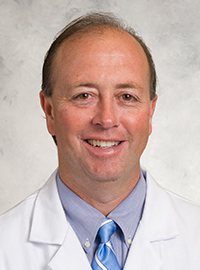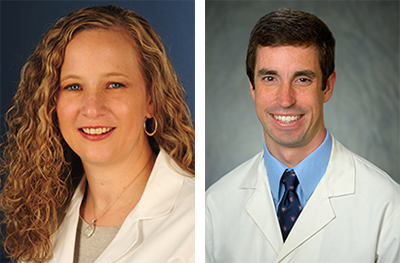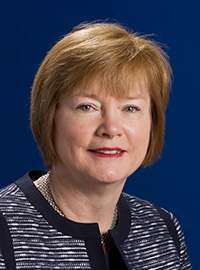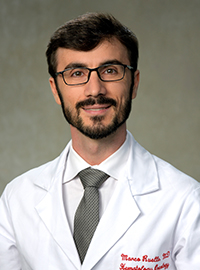Awards & Prizes
Rotonya M. Carr, MD, an assistant professor of medicine in the division of Gastroenterology, has joined the editorial board of the Journal of Lipid Research as part of the journal’s inaugural cohort of Junior Associate Editors. Four assistant professors, including Carr, were chosen from nominations by the journal’s associate editors. They will partner with senior editors to learn how to manage the peer-review process, while also contributing a new type of article to the journal — commentaries on promising lipid research published elsewhere.
 Gregory G. Ginsberg, MD,
Gregory G. Ginsberg, MD,
Gregory G. Ginsberg, MD, a professor of Medicine and director of Endoscopic Services in the department of Gastroenterology, received the Rudolf V. Schindler Award from the American Society for Gastrointestinal Endoscopy (ASGE). The award, ASGE’s highest honor, is granted to a member whose accomplishments in endoscopic research, teaching, and/or service to ASGE exemplify the standards and traditions of the award’s namesake–Rudolf V. Schindler, MD, founder of the American Gastroscopic Club, the forerunner of ASGE. Ginsberg will accept the honor at ASGE’s Crystal Awards event in May.
 Xianxin Hua, MD, PhD,
Xianxin Hua, MD, PhD,
Xianxin Hua, MD, PhD, a professor of Cancer Biology, received an Accelerator Award from the Neuroendocrine Tumor Research Foundation for a four-year study to develop nanobody-directed CAR T-cell therapy with combinatory approaches in laboratory animals to kill neuroendrocrine tumor (NET) cells. His work aims to develop efficacious NET-specific immunotherapy. Hua is among eight recipients whose awards total $2.5 million.
 Carrie L. Kovarik, MD,
Carrie L. Kovarik, MD,
The American Academy of Dermatology has honored Carrie L. Kovarik, MD, an associate professor of Dermatology, and Keith W. Hamilton, MD, an assistant professor of Infectious Diseases, as Patient Care Heroes for their collaboration to diagnose a patient suffering from leprosy. During a joint visit, Kovarik and Hamilton saw the patient who had traveled abroad, and together, they devised an appropriate treatment plan. They continued to collaborate as the patient healed, making adjustments as needed.
 Maureen G. Maguire, PhD,
Maureen G. Maguire, PhD,
Maureen G. Maguire, PhD, is the recipient of this year’s Lawrence J. Singerman Medal, awarded by the Macula Society. This award is given annually to one outstanding Macula Society member for their contributions to the advancement of science through retinal clinical trials. Maguire is the principal investigator of the coordinating center for several multi-site clinical trials for the prevention and treatment of age-related macular degeneration.
 Marco Ruella, MD,
Marco Ruella, MD,
Marco Ruella, MD, an assistant professor of Hematology-Oncology and a member of the Center for Cellular Immunotherapies, was among the recipients of this year’s ASPIRE Awards from The Mark Foundation. The $3.4 million grant program funds high risk, high reward approaches to solving complex problems in cancer research that tend to fall outside the scope of other funding opportunities. Ruella and his team, including Sara Cherry, PhD, a professor of Microbiology, and Igor Brodsky, AB, PhD, an assistant professor of Pathobiology in the University of Pennsylvania School of Veterinary Medicine, are working to develop combination strategies that will improve outcomes for cancer patients treated with the adoptive cell transfer approach called chimeric antigen receptor (CAR) T-cell therapy.
The Parker Institute for Cancer Immunotherapy recently welcomed two early career Penn researchers in cancer immunotherapy to its network as part of the Parker Scholars, Parker Bridge Scholars, and Parker Fellows programs. These researchers will receive a total of up to $3.1 million in funding and the opportunity to train with top scientists in the field, to support them as they embark on their research to move the field forward. Cécile Alanio, MD, PhD, a post-doctoral researcher in Immunology, was named a Parker Bridge Scholar. Alanio studies the impact infections have on T-cells in healthy patients and plans to apply her findings to generate new approaches to treating cancer patients with immunotherapy. Her goal is to bridge the gap between basic science and clinical research to create effective personalized immunotherapies. Sierra McDonald, a PhD candidate in Cell and Molecular Biology, was named a Parker Scholar. She seeks ways to improve CAR-T therapy response rates by looking at the HMG-box family of proteins. McDonald is looking forward to connecting with clinicians who can help her expand her work to cancer patients.
 David A. Asch, MD, MBA,
David A. Asch, MD, MBA,
 Kiran Musunuru, MD, PhD, MPH,
Kiran Musunuru, MD, PhD, MPH,
Five Penn Medicine faculty members were honored this month at Translational Science 2019, the joint annual meeting of the Association for Clinical and Translational Science (ACTS), Association of American Medical Colleges (AAMC), American Federation for Medical Research (AFMR), the Clinical Research Forum and PhRMA Foundation, in Washington D.C.
David A. Asch, MD, MBA, executive director of the Penn Center for Health Care Innovation, received the ACTS Distinguished Investigator Award for Translation into Public Benefit and Policy, which recognizes achievement in applying translational research findings into effective public policies that promote health or implementation and dissemination of translational solutions.
Kiran Musunuru, MD, PhD, MPH, an associate professor of Cardiovascular Medicine and Genetics, received the 2019 Outstanding Investigator Award from the American Federation for Medical Research (AFMR). The award, AFMR’s highest honor for medical investigation, is granted to a member in recognition of their excellence in biomedical research.
Three other Penn Medicine faculty members including Joseph Fraietta, PhD, an assistant professor of Pathology and Laboratory Medicine, Lindsey George, MD, an assistant professor of Pediatrics at Penn and an attending physician in the division of Hematology at Children's Hospital of Philadelphia, and Courtney Anne Schreiber, MD, MPH, an associate professor of Obstetrics and Gynecology, received the Clinical Research Forum’s 2019 Top Ten Clinical Research Achievement Awards—read more about their research endeavors.
Penn Medicine is one of the world’s leading academic medical centers, dedicated to the related missions of medical education, biomedical research, excellence in patient care, and community service. The organization consists of the University of Pennsylvania Health System and Penn’s Raymond and Ruth Perelman School of Medicine, founded in 1765 as the nation’s first medical school.
The Perelman School of Medicine is consistently among the nation's top recipients of funding from the National Institutes of Health, with $550 million awarded in the 2022 fiscal year. Home to a proud history of “firsts” in medicine, Penn Medicine teams have pioneered discoveries and innovations that have shaped modern medicine, including recent breakthroughs such as CAR T cell therapy for cancer and the mRNA technology used in COVID-19 vaccines.
The University of Pennsylvania Health System’s patient care facilities stretch from the Susquehanna River in Pennsylvania to the New Jersey shore. These include the Hospital of the University of Pennsylvania, Penn Presbyterian Medical Center, Chester County Hospital, Lancaster General Health, Penn Medicine Princeton Health, and Pennsylvania Hospital—the nation’s first hospital, founded in 1751. Additional facilities and enterprises include Good Shepherd Penn Partners, Penn Medicine at Home, Lancaster Behavioral Health Hospital, and Princeton House Behavioral Health, among others.
Penn Medicine is an $11.1 billion enterprise powered by more than 49,000 talented faculty and staff.